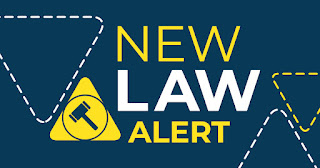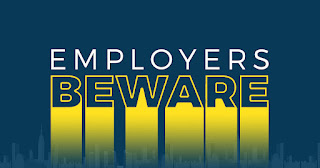Reddit Story: My Boss Lifted My Skirt to “Check Dress Code” — This Is Why We Say #STOPTHEICK
“He said my outfit was ‘too suggestive’ but that it would be fine to wear if I was his personal assistant. Then he stood up, lifted my skirt, and put his hand down my underwear. He said, ‘if I can do this, it’s breaking dress code.’”
A young woman posted this after starting her first job as a front-desk receptionist. Her boss made “offhand jokes,” calling her eye candy and saying front-desk work was “a woman’s job.” She brushed it off. Most of us do because we’re told to be professional, not make it weird, and keep our heads down.
But this story shows what happens when the ick goes unchecked. What started as comments escalated into assault.
It Starts With the Ick
That uncomfortable feeling in your gut when someone in power jokes about your body or clothes? That’s not oversensitivity. That’s your instincts warning you. That’s the ick.
When workplaces ignore it when people say “he didn’t mean it like that” the behavior festers until someone gets hurt.
Here’s the Truth
What this boss did is not a “misunderstanding.” It’s sexual assault and workplace discrimination.
Yet, that's not even the point - the point is you can't give an inch when you get the ick. Even if the statements weren't severe and pervasive enough or even if they were just petty slights or trivial inconveniences, too many people focus on whose right? Instead, you need to focus on #STOPTHEICK before you even get to whether there is a hostile environment case because an unchecked hostile environment often turns into sexual assault.
Just so you know, you are protected under both federal law and state laws across the tri-state area that make this conduct illegal:
- ⚖️ Title VII of the Civil Rights Act of 1964 (Federal): Applies to nearly all U.S. workplaces.
- ⚖️ New York State & New York City Human Rights Laws: Prohibit any unwelcome sexual conduct, even one incident.
- ⚖️ New Jersey Law Against Discrimination (LAD): Protects employees from harassment, retaliation, and hostile work environments.
- ⚖️ Connecticut Fair Employment Practices Act (CFEPA): Bans sexual harassment and protects anyone who reports it.
These laws make sexual harassment and assault illegal in every workplace. They protect employees from unwanted sexual contact, comments, advances, and any retaliation for reporting misconduct.
You don’t have to scream or fight back for it to count. Freezing is a trauma response, not consent.
Retaliation is illegal. You cannot legally be fired, demoted, or punished for speaking up.
You have legal options:
- 📄 File a complaint with HR, the EEOC, or your state or city human-rights agency.
- 🧑⚖️ Bring a lawsuit against an employer or coworker who violated your rights.
- 💼 Negotiate severance or settlement through an employment attorney.
- 🔐 Keep everything confidential, you decide how and when to share your story.
If this happened to you, you are protected under federal law and your state’s law and you are not alone.
Why We Say #STOPTHEICK
“Jokes,” “compliments,” and “dress-code talks” like this aren’t harmless they’re warning signs of cultures that excuse abuse. More so, that boss was testing you to see what he could get away with and thought it was okay to put his hand down your pants. Every ignored ick is an open door for someone to cross another and further line.
Calling it out isn’t overreacting. It’s prevention. It’s how we keep workplaces safe, equal, and human.
If You’ve Experienced This
You are not alone. You are not to blame. And you have rights.
Get confidential help at www.stoptheick.com or contact Lieb at Law, P.C. at (646) 216-8009.
#StopTheIck #WorkplaceHarassment #SexualHarassmentAwareness #YouAreNotAlone #EndWorkplaceAbuse
*attorney advertising






